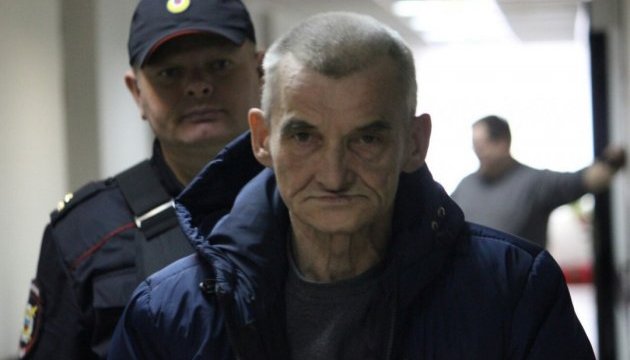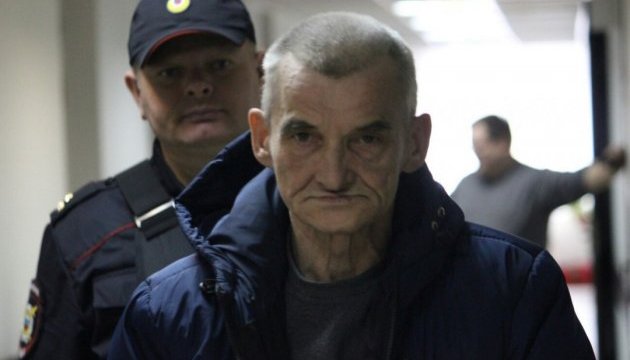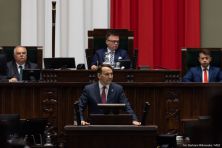
Photo from Ukrinform
A Russian historian, who helped uncover crimes of the Stalin era, was acquitted on April 5 of child pornography charges, which human rights groups said had been used for political reasons.
However, many human rights activists and Russia’s leading cultural figures said that Dmitriev was framed because of his focus on Stalin’s crimes, which clashed with Kremlin’s narrative that Russia must not be ashamed of its past. Vladimir Putin said last year that “excessive demonization of Stalin is one of the ways to attack the Soviet Union, Russia.”
Dmitriev dedicated himself to documenting Stalin’s 1937-38 Great Terror, in which nearly 700,000 people were executed, according to conservative official estimates. Dmitriev found a mass grave with up to 9,000 bodies dating from that time period.
A court in Petrozavodsk, in northwest Russia, cleared Dmitriev of the child pornography and depravity charges. However, the same court found him guilty of illegally possessing elements of a firearm, something Dmitriev has always denied.
His lawyer, Viktor Anufriev, said that his client would now face certain restrictions on his freedom of movement for the next three months, as a result of the fire arms conviction. It is not clear whether Dmitriev will appeal.
Dmitriev was the head of the local branch of Memorial, a human rights group which documents Russia’s Soviet past. He was arrested in December 2016 by police acting on an anonymous tip, days after someone had broken into his home and accessed his computer. Russian human rights groups spoke out in defense of Dmitriev, saying investigators had illegally searched his house, opened a criminal case based on an anonymous claim and subjected him to a forced psychological examination, all practices reminiscent of the Stalinist past that Dmitriev had dedicated his life to exposing.
State prosecutors then accused him of taking pornographic photographs of his adopted daughter. Dmitriev said the photographs were not pornographic, but did involve nudity because he took them to document her health for social services. He said that he took the photos to prove that he was not beating the girl, in case social services accused him of child abuse. A court-appointed committee eventually agreed that the pictures were not pornographic in nature.













